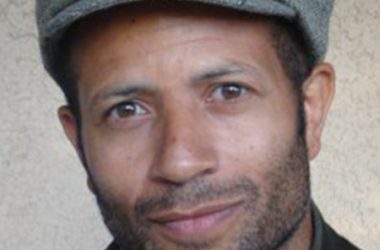By JJ Amaworo Wilson
“Experience, we are told, is a great teacher. If this is so, then my classroom was a clandestine prison and my teachers, experts in the commission of crimes against humanity.” (Sister Dianna Ortiz, from Preface)
Thus begins this harrowing collection of essays on torture, incarceration, and the flouting of human rights by the world’s most powerful nation, a country which prides itself on liberty, yet regularly locks up and tortures so-called suspected “enemy combatants” for years, without recourse to a trial. It’s an appalling state of affairs and worse for the sheer ignorance and/or indifference of the American public.
The book is edited by human rights lawyer Marjorie Cohn and includes fourteen essays by lawyers, journalists and academics. Part I looks at the History and Character of Torture; Part II covers Torture and Cruel Treatment of Prisoners in U.S. Custody; and Part III is named Accountability for Torture. The book has a particular focus on the U.S.’s involvement in Latin America and on the Bush administration’s post-9/11 approach to the Middle East – what might be termed a Bull In A China Shop methodology if only bulls had guns, chains and handcuffs.
The abuses range far and wide, covering the spread of torture from the post-World War II era. This period is marked by the CIA’s efforts to destabilize democratically elected governments all over Latin America and elsewhere and to help right-wing militias assume and keep power through the use of violence. Through the notorious School of Americas in Georgia, the U.S. was able to spread its methods. The “school” trained thousands of soldiers from all over Latin America in the ways of torture. Beginning here, the book then moves deftly through time, all the way to the present-day treatment of the incarcerated.
Some of the most harrowing chapters are first-hand accounts of abuse in prisons, military and otherwise. Without a shred of evidence and often because they happened to be Muslims in the wrong place at the wrong time, hundreds of men are locked up and “interrogated” for years.
Certain facts and themes recur throughout the book: most of the essayists offer definitions of torture. Almost all explain that it doesn’t work, because the tortured will say whatever the torturer wants to hear in order to stop the pain. Several mention the part played by language, as government lawyers attempt to find loopholes to exonerate torturers and would-be torturers. Language is also used to hide the horror: “extraordinary rendition” is a fancy way of describing the process of kidnapping someone and sending them abroad to be brutalized by the authorities. “Enhanced interrogation” means torture.
The acts perpetrated in the name of “security” are from the dark ages, medieval punishments barely conceivable in the 21st century: waterboarding, people strung up by the ankles, unmuzzled dogs unleashed at the genitals of prisoners, men being thrown into walls, prisoners force-fed by having tubes shoved down their throats. Abu Ghraib was no anomaly. It wasn’t even the worst.
Alas, it’s not only the usual suspects (the Bush/Rumsfeld/Cheney axis of evil) who must take responsibility. Lawyers and psychologists are implicated. And while in office, Obama refused to prosecute Americans who were guilty of human rights abuses. Instead he hid behind the idea that he’s more interested in looking forward than back – a piece of sophistry that would render all punishment null and make all criminals unpunishable. He also failed to close Guantánamo.
And what of the current torture-friendly regime? Trump was just a TV host when this book went to press, but Michael Ratner, a human rights lawyer, warns us:
“I looked at what was happening to our clients [prisoners in Guantánamo]. I saw them a bit like canaries in a coalmine because what was happening to them really tells us about what will happen in this country … If you can take away those rights and simply grab someone by the scruff of the neck and throw them into some offshore penal colony because they are non-citizen Muslims, those deprivations of rights will be employed against all.”
It’s a commonplace that we should treat others how we would like to be treated. The U.S.’s treatment of suspects in its dubious “war on terror” is a monstrous disaster, a tragedy of dehumanization, and an utter failure of the principles the country supposedly stands for: liberty and justice. Maybe in this current climate those ideals have been forgotten, but sometime somewhere justice will prevail. And these acts will be the shame of the nation.
Back to JJ Amaworo Wilson’s Author Page



